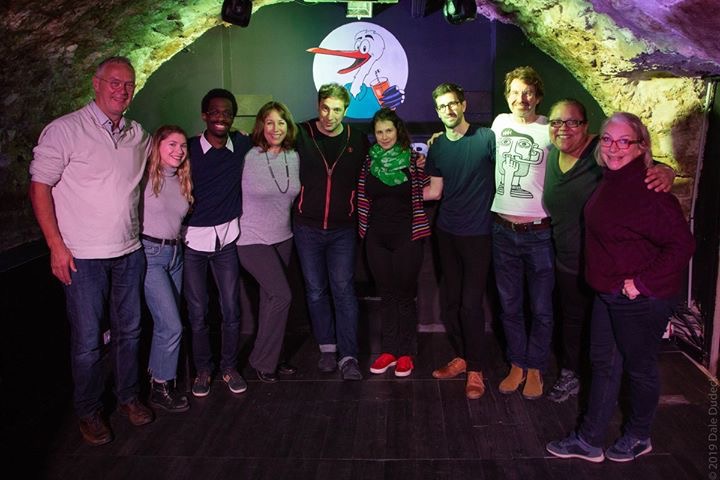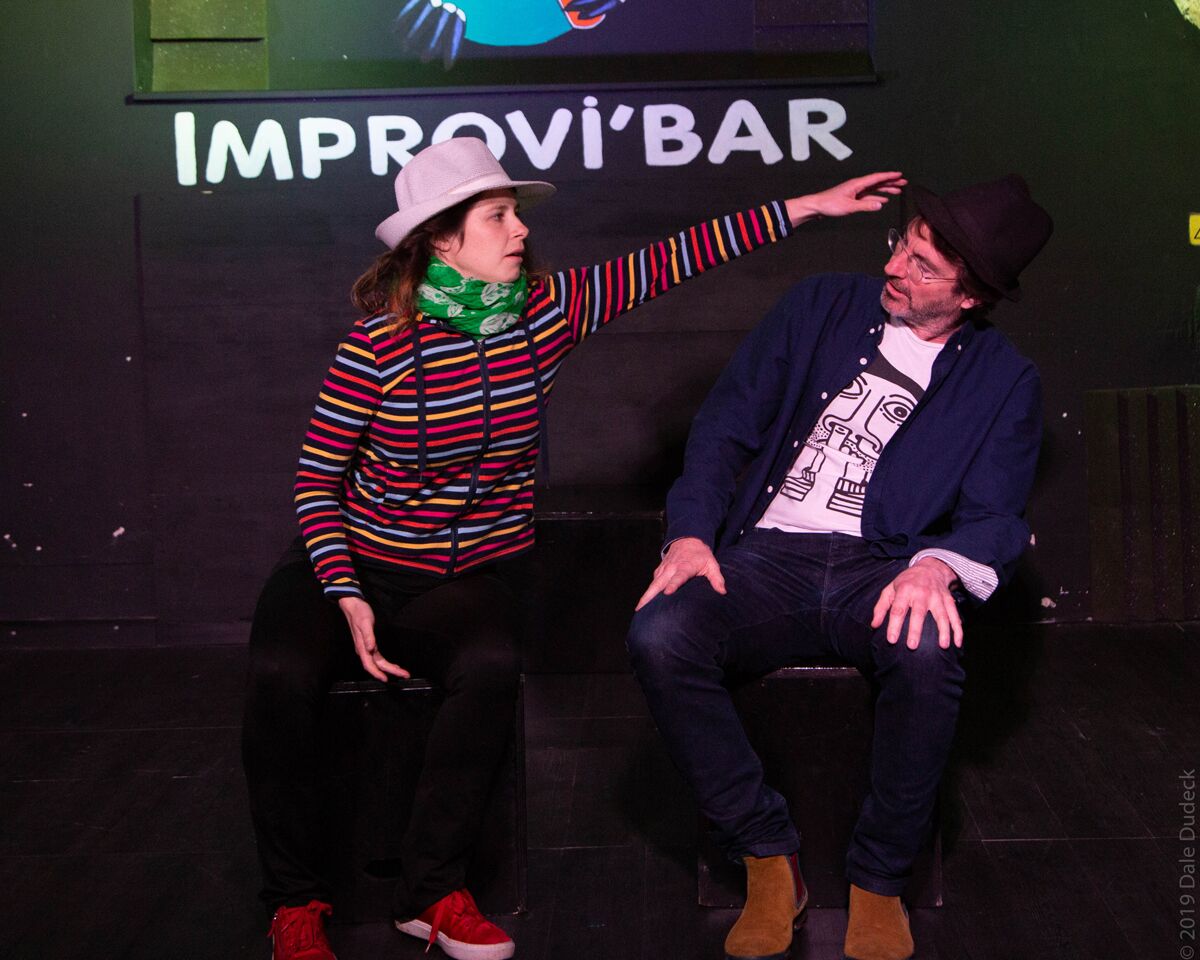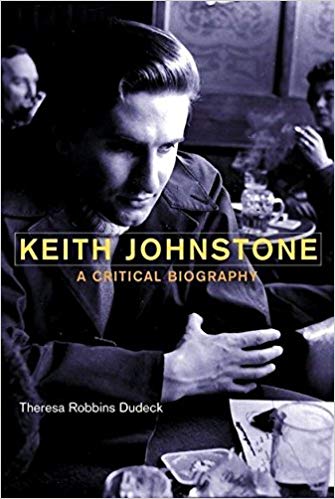Keith Johnstone & Status games
Our paths sometimes lead us back to sources of inspiration and creativity we ignored when they were right in front of us. I knew this would happen when I signed up for a workshop at the Paris Improvi’bar with Theresa Robbins Dudeck, the official biographer of the inventor of Theatresports™ and key improv theories, Keith Johnstone. I knew little about Keith’s work on status games, although I had heard people rave about Keith’s influence on improv. And I had performed with people who have taken or taught his workshops at the famous Loose Moose Theatre Company in Calgary, Alberta, Canada.
What’s striking is Calgary is my hometown. I studied arts at the University of Calgary while Keith taught there. Of course, I had heard about the Loose Moose Theatre from friends and family and worked on an underground culture magazine in Calgary with people who performed there. Yet, I had always avoided going there to discover what Keith was offering the world right in my backyard
That’s why I thank Theresa Robbins Dudeck for bringing Keith’s ideas to me in Paris, France. Theresa is the perfect relay for several reasons:
First, as a long-time friend and associate of Keith’s, she knows how Keith thinks and and communicates his approach to improv with joy and respect.
Secondly, she is a great teacher and director of drama and theatre skills too. As if to prove that point, a former student of hers, who has an important role in a Disney series, was at the workshop to learn and perfect her skills. What a joy to play scenes with such a talent!
Thirdly, Theresa’s introduction to her book Keith Johnstone: A Critical Biography sets out the core concepts of Keith’s work in a way which is easier to grasp than Keith’s own writings.
Keith’s background story
Theresa’s book showed me how Keith’s childhood, youth, and troubles fitting in with the British education system influenced his approach to teaching. Keith’s anti-establishment mind spawned ideas which evolved as he searched for more creativity and liberation through play on stage.
I was amazed to read about his friendship with Samual Beckett. And how Keith joined an ecelctic group of experimental misfits which included Harold Pinter at the Royal Court Theatre in Sloane Square in the 1950s and 1960s. (I worked in Sloane Square in the mid-1980s and walked by this building everyday, so this was another fun personal connection to Keith’s work).
Keith’s unique impact at the Royal Court profoundly changed the stage work developed there and transformed British theater and film. However, I was surprised to read that British law required the text of each play to be accepted by a censorship board at this time. As a result, unscripted improv shows, as we know them today, were forbidden. In fact, Keith had to wait to get to Canada to develop full audience involvement into shows like Theatresports™ and the ones held at the Loose Moose Theatre during its early years.
In spite of the censorship board, the work at the Royal Court was very anti-establishment and the concept of status played a large role in Keith’s work as well as other playwrights at the Royal Court like Harold Pinter. In fact, the concept of status is one of Keith’s legacies to the world of drama teaching, theater and screen writing, and professional acting today.
What is status and why speakers need to understand how it works
To show us how status works, Theresa directed two players in a very simple scene:
One player sits on a chair, Another player enters the scene. The players say “Hello” and then the second player says “Been waiting long?” to which the first person answers “Yes, I have been waiting two hours”
We observed this scene several times with various players to see how body language, eye contact, and a few lines of dialogue could modify our impression of which person was in power or had “status” over the other person. This game and others that we played made it clear that as performers whenever we interact with another person or an audience we can take status or lose it in subtle ways.
We increase our status by….
- Moving smoothly
- Speaking slowly and using pauses
- Keeping hands away from the face
- Spreading our body out to take up more space
- Showing teeth when smiling
- Keeping the head still while speaking
- Making sustained and direct eye contact
- Using verbal fillers only at the end of sentences to give impression we are pausing to think of something very important to say.
We decrease our status by…
- Moving in a jerky or nervous manner
- Speaking fast and not using pauses
- Excessive facial expressions and head movements
- Reducing the space our body takes up by holding arms against body, crouching shoulders, pointing toes inwards etc..
- Putting hands near face, covering our mouth, touching hair.
- Not showing teeth when smiling.
- Beginning sentences or breaking up sentences with verbal fillers like “er”, “um” “like”
- Furtively glacing or avoiding eye contact
When we speak in public, we fear making verbal tics and stumbles or the wrong gestures. But we don’t really know why. Taking Theresa’s workshop showed me that our fears are connected unconsciously to our fear of a loss of status. Most often when we speak to an audience, we want or need to empower ourselves by adopting the signs of high “status.”
And yet, sometimes we might need to reduce our status to empower our audience. Clowns deliberately adopt the signs of low status and we love them for it. But even they play status games with their audience or with each other.
Being aware of the “status” we comuunicate as we speak, and the manner we do this, helps us find connection with our audience. Studying Theresa taught me Keith Johnstone’s status games were not only fun, they also offer key insights into being a colorful and successful communicator.
Colorfully yours
David Martin


